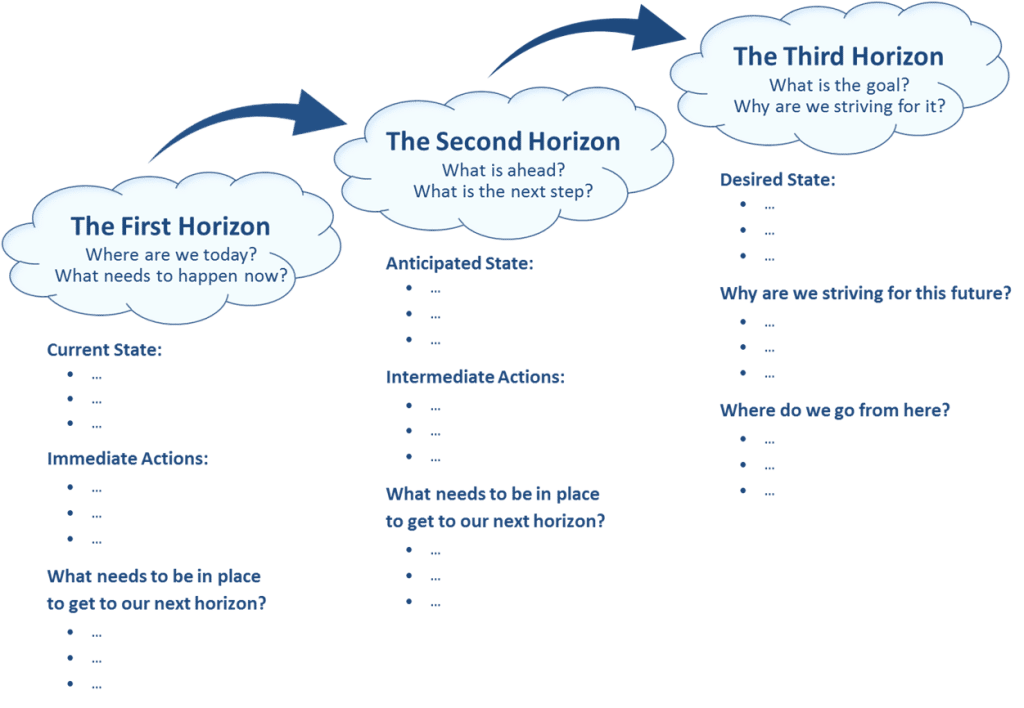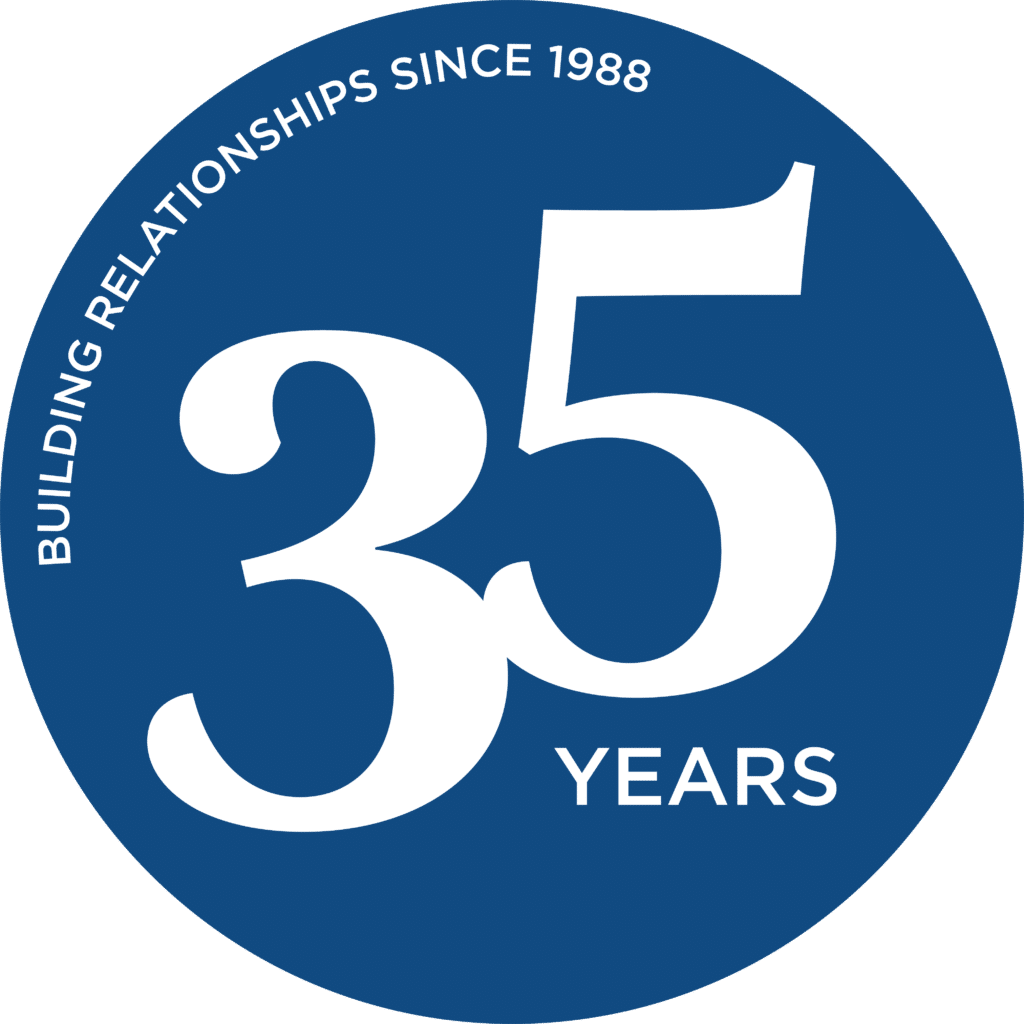Over a hundred years ago, Thomas Edison warned that “vision without execution is hallucination.” It was true then and it’s true now. Implementing strategy and driving change is hard and that’s why it often fails. Rather than simply hallucinating about a successful outcome, leaders need to be clear and compelling in how they engage people in achieving the vision.
A Three Horizons approach helps translate a strategic vision of the future into a more detailed and practical discussion by providing context and perspective about:
- The current state of the organization and what needs to happen now (The First Horizon).
- What’s ahead and what needs to be addressed next (The Second Horizon).
- What the organization is working towards and why this vision of the future is better than the current reality (The Third Horizon).
The Three Horizons approach creates a road map that links today’s and tomorrow’s actions to long-term goals. It also helps defuse fear and uncertainty by outlining the what, why, and when of change. Equally important, the process helps people understand what organizational anchors and expectations will remain unchanged. Clarity of expectation makes the process of operationalizing strategy or implementing change easier and more successful.
Rather than a linear approach that starts with everything that needs to be done, begin with the end in mind.
THE THIRD HORIZON
The third horizon is a view of what the future will look like as a result of successful organizational change or strategy execution. Define this goal state in as much detail as possible by describing where you want to go, why, when you plan to arrive, and how you will know when you are there.
Critical questions that help frame the third horizon:
- What is our long-term goal?
- What needs to be in place for us to achieve this goal?
- What is the time frame for achieving this goal?
- Why are we striving to meet this third horizon?
- Why is this future vision better than our current reality?
With a clearly defined destination and timeframe, the focus shifts to identifying what needs to happen. Realization of this desired state is only possible through the actions taken in the first horizon to achieve the second horizon and the successful effort to move from the second to the third horizon.
THE SECOND HORIZON
The second horizon is an easily identifiable point along the way that signifies success and confirms that the longer term goal is within reach. This mid-term future serves as the transitional anchor for action and focus that is more intermediate in nature than the longer term objective.
Critical questions that help define the second horizon:
- What does our second horizon look like?
- What needs to be in place to achieve this horizon?
- Why is the second horizon critical to achieving our third horizon goal?
- What is the time frame for the second horizon?
Focusing on interim goals or steps along the way help make the change process more manageable and easier for people to understand and embrace. Celebrating the successes of achieving intermediate goals provides encouragement and validation that the overarching goal is attainable.
THE FIRST HORIZON
The first horizon represents the immediate future and the first steps toward the goal. The focus is on the immediate actions required to move in the direction of the desired state. These are typically incremental steps rather than radical steps.
Critical questions that set context for the immediate actions that need to happen in the first horizon:
- What is our current state?
- What steps do we need to take now to get to our next horizon?
- Why are these steps important?
- When do these steps need to be achieved?
Resist the temptation to try to do too much, too soon. Maintaining the momentum of change is hard and it is almost impossible if you try to do everything at once. Focus on identifying and addressing the few things that need to be done now as opposed to those actions and activities that should be deferred until later in the process.
THREE HORIZONS AS A COMMUNICATIONS ANCHOR
With any change effort, it is critical to translate the vision and strategy into a detailed discussion about goals, expectations, and required actions. This must be done at a group, department and individual level. Take the time to paint a compelling vision of the future you are striving to achieve. Engage the whole of the organization in understanding that this desired state, the third horizon, is only possible with specific individual and collective actions. Remind people:
- Where we were (context)
- Why we decided to make a shift (the case for change)
- What’s next (identify near term goals)
- What we have accomplished to date during the change journey (highlight success and momentum)
- How we will know we have achieved success (define the desired state)
- What you need them to do (the specific call to action)
While it is sometimes challenging to provide, consistent proactive communication is what keeps people connected and engaged. Frequent updates, ongoing feedback, and continuing reinforcement of key messages are critical for success.
Rarely does real change occur in big bursts. More often, change sticks when small efforts are attempted, acknowledged, reinforced, and repeated. Use the Three Horizons approach to pace and frame change by translating the conversation into a more detailed and practical discussion about goals, expectations, and required actions at an individual, group, and organizational level.
This focused approach brings a strategic vision to life rather languishing as an unfulfilled dream or hallucination about the future. Frame your horizons, execute your plan, and achieve your goal.
Brian Clapp
President
CCI Consulting




